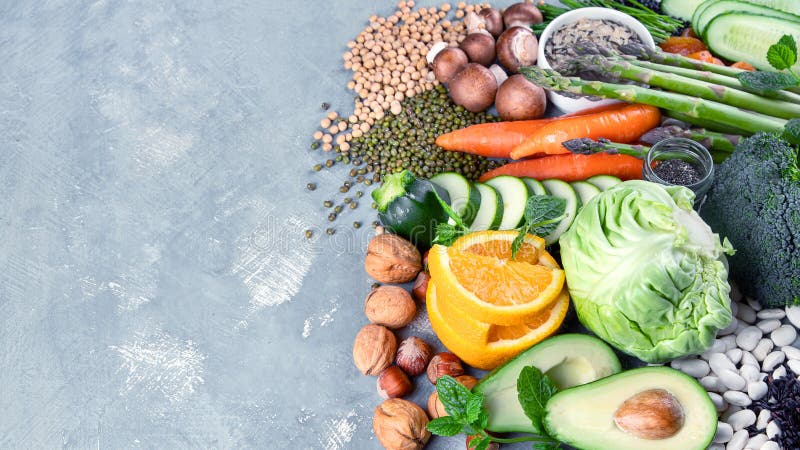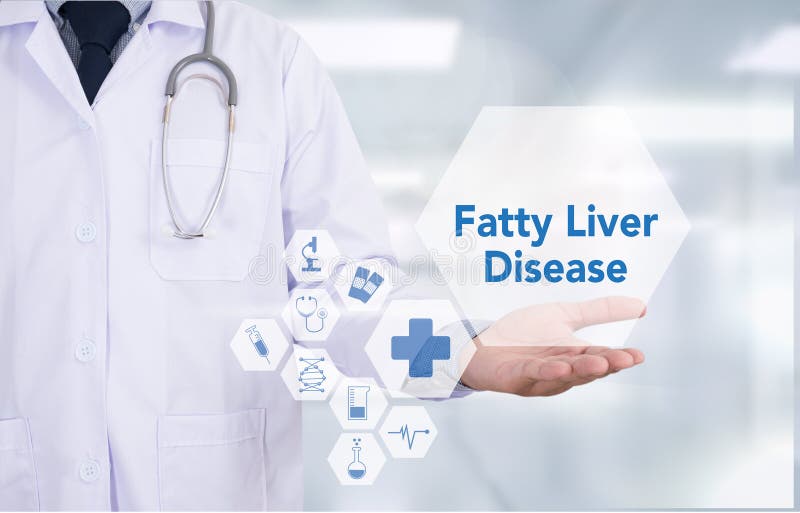Vegan Globetrotter is supported by our audience. When you purchase through one of our links, we may earn a small affiliate commission. As an Amazon Associate I earn from qualifying purchases. Your cost is not affected.
==================
Plant-Based Diet for a Fatty Liver
To live a healthy life, fatty liver is not something you should ignore. Therefore, experts suggest a plant-based diet for a fatty liver to prevent further damage. Various studies have shown that fatty liver can affect your health negatively. This happens in a way no one wants to experience. In this article, I will be providing you the details about a plant-based diet for a fatty liver.
Fatty Liver: A Problematic Condition
Fatty liver or hepatic steatosis defines as an excessive accumulation of fat within the cells of the liver (hepatocytes). The actual condition of Fatty liver occurs when there’s an imbalance between fatty acid uptake and synthesis by hepatocytes. Fatty acids take up, but they fail to use for energy production and storage. Hence, it accumulates within the cell. It results in the fatty liver because not all fatty acids are used. Instead, it stores some of them.
Fatty Liver: What Causes It?
 Several factors contribute to the fatty liver. Fatty liver occurs when there’s an imbalance between fatty acid uptake and synthesis. The fatty acids take up but are useless for energy production and storage. Factors contributing to the fatty liver include alcoholism, obesity, diabetes, dieting, malnutrition or starvation, and certain medications such as antibiotics or steroids. Apart from these factors, fatty liver is also caused by a lack of physical activity.
Several factors contribute to the fatty liver. Fatty liver occurs when there’s an imbalance between fatty acid uptake and synthesis. The fatty acids take up but are useless for energy production and storage. Factors contributing to the fatty liver include alcoholism, obesity, diabetes, dieting, malnutrition or starvation, and certain medications such as antibiotics or steroids. Apart from these factors, fatty liver is also caused by a lack of physical activity.
What Are The Main Symptoms Of Fatty Liver?
The main symptoms of fatty liver include fatigue, weakness, and weight loss. Other symptoms include nausea, vomiting, and abdominal discomfort. There are cases wherein the fatty liver is asymptomatic. Although there are no symptoms, fatty liver can lead to cirrhosis or hepatic cancer.
What Are The Main Causes Of Fatty Liver?
The leading causes of fatty liver include alcoholism, obesity, diabetes, dieting and malnutrition or starvation, and certain medications such as antibiotics or steroids. Apart from this cause fatty liver is also caused by a lack of physical activity. Other factors also contribute to the fatty liver, such as hepatitis B virus (HBV) and hepatitis C virus (HCV).
Plant-Based Diet For Fatty Liver: A Great Alternative
A plant-based diet for a fatty liver is an alternative for fatty liver. Eating a plant-based diet is effective in treating greasy liver conditions. Plant-based diets are rich in natural antioxidants, nutrients, and phytochemicals. This supports the body’s natural cleansing process to reduce fatty buildup within the liver.
What is a plant-based diet?
A plant-based diet focuses on foods derived from plants, including vegetables, whole grains, nuts, seeds, legumes, and fruits. It also excludes meat (including chicken and fish), dairy products, eggs, and processed foods made with these ingredients.
What are the benefits of a plant-based diet?
Following a plant-based diet will bring numerous health benefits to the individual. Eating this type of food affects the fatty liver and reduces the risk of hypertension, heart disease, obesity, and cancer. In addition, it can detoxify your body. This is because it stores all toxins present in our environment in fatty tissues. Fatty liver occurs when there’s an imbalance between fatty acid uptake and synthesis.
Are there any disadvantages of eating a plant-based diet?
The main disadvantage of eating a plant-based diet is that it can be expensive at first. But the budget will even out once you’re used to the ingredients. It would help if you also had more time for meal preparation. This involves lots of chopping and cutting vegetables. It’s also difficult to follow if you are away from home or traveling on business trips. It is because fast-food restaurants do not offer nutritious plant-based dishes.
What Are Some Tips For Eating A Plant-Based Diet?
Here are some tips for eating a plant-based diet:
3) Eat foods in their whole forms
4) Keep track of what you eat
5) Be patient and consistent
6) Limit your intake of sugar, fatty meat, fatty dairy products, and fatty snacks.
Plant-Based Diet For Fatty Liver: What Food To Include?
The main ingredients in a plant-based diet include whole grains, fresh fruits and vegetables, and legumes such as peas and beans. Other than this, nuts and seeds also contribute to fatty liver prevention. They’re low in saturated fats and high in unsaturated fatty acids. Hence it is suitable for cooking.
Aside from these ingredients, a plant-based diet for fatty liver also includes fatty acids like Omega-three fatty acids, alpha-linolenic fatty acid, eicosapentaenoic fatty acid (EPA), and docosahexaenoic fatty acids acid (DHA). These known fatty acids associates with a reduced risk of cardiovascular diseases.
Plant-Based Diet For Fatty Liver: Consume Alcohol In Moderation
While you can treat the fatty liver, excessive alcohol consumption cannot. Drinking too much alcohol will only worsen the condition. This is why it’s highly suggested that you consume alcohol in moderation. When drinking, always drink moderately; never drink alone. If you have a history of alcoholism or show symptoms of fatty liver, consult your doctor first before consuming any form of alcoholic beverages.
Is a Vegan Diet Good for Fatty Liver?
A vegan diet can be good for fatty liver. Scientific studies show the fatty deposits within the liver cells. It then gets released into the bloodstream and replaced by new tissues. Eating a plant-based diet provides enough nutrients to reverse the fatty liver disease or symptoms.
If you want to lose weight, improve your cholesterol levels, and prevent fatty buildup, a plant-based diet is highly recommended. This doesn’t only cleanse your body from toxins. It also improves your digestive system. Moreover, it can contribute to a healthy lifestyle even without heavy food consumption.
Is Plant Protein Bad for Fatty Liver?
No. Plant protein is not bad for fatty liver. On the contrary, plant protein plays a crucial role in fatty acid synthesis and breakdown. This affects fatty deposits within the liver cells. The greasy buildup within gets broken down into fatty acids. These are all released into your bloodstream once used up by other parts of your body.
This breaks down fats in a healthy way, unlike fatty acids from animal proteins that stick to the walls of blood vessels. Such may cause inflammation and obstruction of blood flow leading to heavy buildup or fatty liver disease.
What Kind of Plant-Based Diets Work Best for Fatty Liver?
The best plant-based diets that work well for fatty liver include diets such as the Mediterranean diet, DASH, MIND diet, Okinawan diet, and vegan diet.
What Type of Fatty Liver Plant-Based Diets are here?
There are three types of fatty liver plant-based diets, including the DASH diet. This is based on research done at NIH (National Institutes of Health) with NHLBI (National Heart Lung and Blood Institute). This type of fatty liver plant-based diet focuses more on vegetable-fruit consumption while limiting meat consumption.
The Mediterranean fatty liver plant-based diet includes fruits, vegetables, whole grains, cereals, olive oil as the primary source of fat instead of saturated fats from animal sources. It also contains fatty fish consumption but limits red meat consumption by only eating it occasionally.
Lastly, the vegan fatty liver plant-based diet is good because it’s low in saturated fats. Instead, it includes fatty acids like omega 3, alpha-linolenic, eicosapentaenoic fatty acid (EPA), and docosahexaenoic fatty acid (DHA) through nuts and seeds.
Why do plant-based diets work best for fatty liver?
While animal-sourced foods cause high cholesterol levels in the blood, plant-sourced foods provide nutrients. It can improve your overall health without adding any extra unnecessary calories to your body. This also helps rebuild cells within the liver, leading to rapid healing of fatty livers.
Is eating a plant-based diet safe for fatty liver?
Eating a plant-based diet is safe for fatty liver. An implemented rich liver plant-based diet can help reverse fatty deposit buildups within the cells. It also lowers your cholesterol levels at the same time.
Can a plant based-diet reverse liver damage?
A plant-based diet can reverse fatty liver damage. It’s also an effective dietary plan for fatty liver since it has antioxidants. It can help fight against diseases and complications associated with fatty livers.
Conclusion
Eating a plant-based diet for fatty liver is an alternative treatment that is effective in reducing fat. This type of diet can prevent fatty liver. But once diagnosed with fatty liver, treatment is only by drinking alcohol in moderation and healthy eating habits.
A plant-based diet is rich in antioxidants, nutrients, and phytochemicals; includes whole grains, fresh fruits, vegetables, nuts, seeds; fatty acids like omega-three fatty acids, alpha-linolenic fatty acid EPA; DHA. Consuming these foods will help or control the heavy buildup of the liver. This helps bring back normal liver function as well.
Read More:



 Several factors contribute to the fatty liver. Fatty liver occurs when there’s an imbalance between fatty acid uptake and synthesis. The fatty acids take up but are useless for energy production and storage. Factors contributing to the fatty liver include alcoholism, obesity, diabetes, dieting, malnutrition or starvation, and certain medications such as antibiotics or steroids. Apart from these factors, fatty liver is also caused by a lack of physical activity.
Several factors contribute to the fatty liver. Fatty liver occurs when there’s an imbalance between fatty acid uptake and synthesis. The fatty acids take up but are useless for energy production and storage. Factors contributing to the fatty liver include alcoholism, obesity, diabetes, dieting, malnutrition or starvation, and certain medications such as antibiotics or steroids. Apart from these factors, fatty liver is also caused by a lack of physical activity.




Don't miss out
when new recipes and information are added!
Join our newsletter for free recipes,
healthy living inspiration, and special offers
You have Successfully Subscribed!